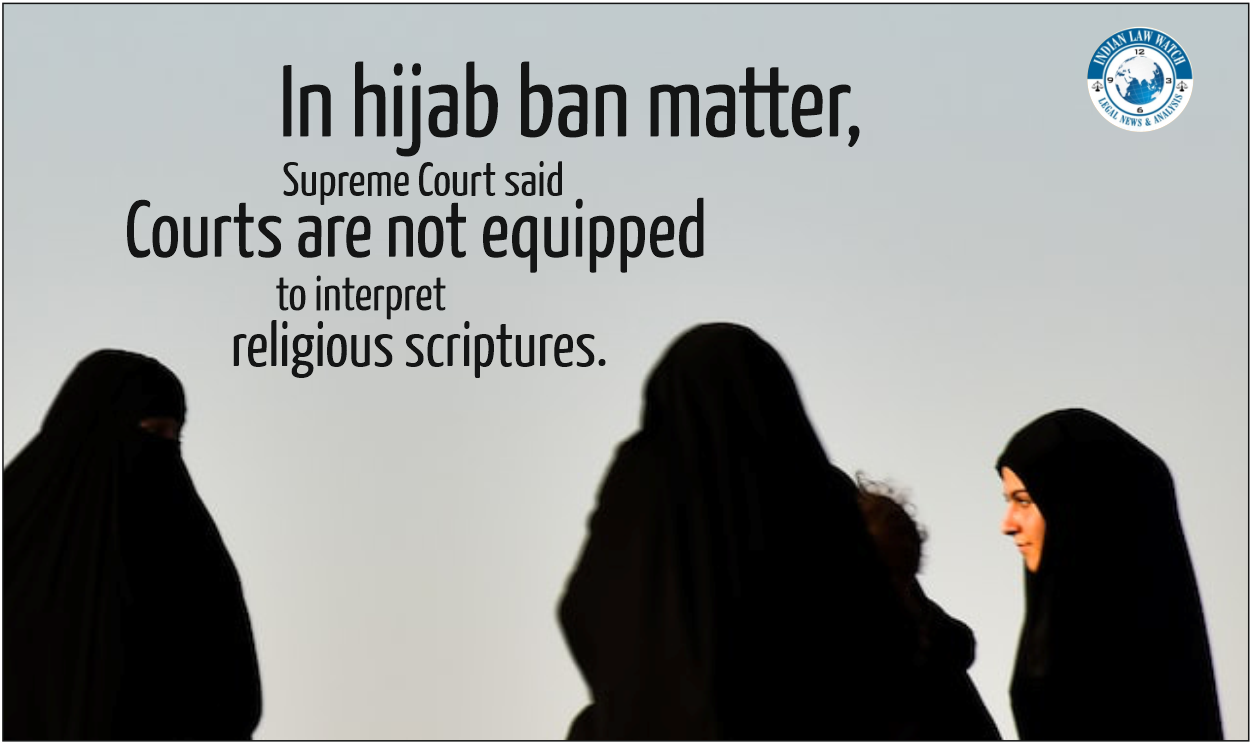

The Supreme Court today said it is not the “interpreter” of the Holy Quran and it has been argued before it in the Karnataka hijab ban matter that courts are not equipped to interpret religious scriptures.
The apex court, which was hearing arguments on a batch of pleas challenging the Karnataka High Court verdict refusing to lift the ban on hijab in educational institutions of the state, made the observation after a counsel for one of the petitioners said the judgement under challenge was touching upon the Islamic and religious perspective.

“The one way is to interpret the Quran…. We are not interpreters of the Quran. We cannot do it and that is the argument raised also that the courts are not equipped to interpret religious scriptures,” a Bench of Justices Hemant Gupta and Sudhanshu Dhulia said.


-
The top court heard submissions of several lawyers, who appeared for the petitioners and argued on various aspects including the wearing of hijab being a matter of privacy, dignity and also autonomy, and whether the practice of wearing it is essential or not. One of the advocates argued the way the high court interpreted the matter on Islamic and religious perspective was a “wrong assessment”. “The high court might have said anything, but now we are taking an independent view in the appeals,” the Bench maintained.
-
Advocate Shoeb Alam argued that wearing hijab was a matter of one’s dignity, privacy and autonomy. “On one end, I have my right to education. On the other hand, there is my other right, which is right to privacy, dignity and autonomy,” he said.
-
Alam said the impact of the government order (GO) banning hijab in educational institutions with prescribed uniforms is that “I will give you education, give me your right to privacy, surrender it. Can the State do it?” He said the state could not come up with a GO asking a person to surrender her right to privacy. Senior advocate Kapil Sibal suggested that the matter should be referred to a Constitution Bench.
Source : The Tribune





